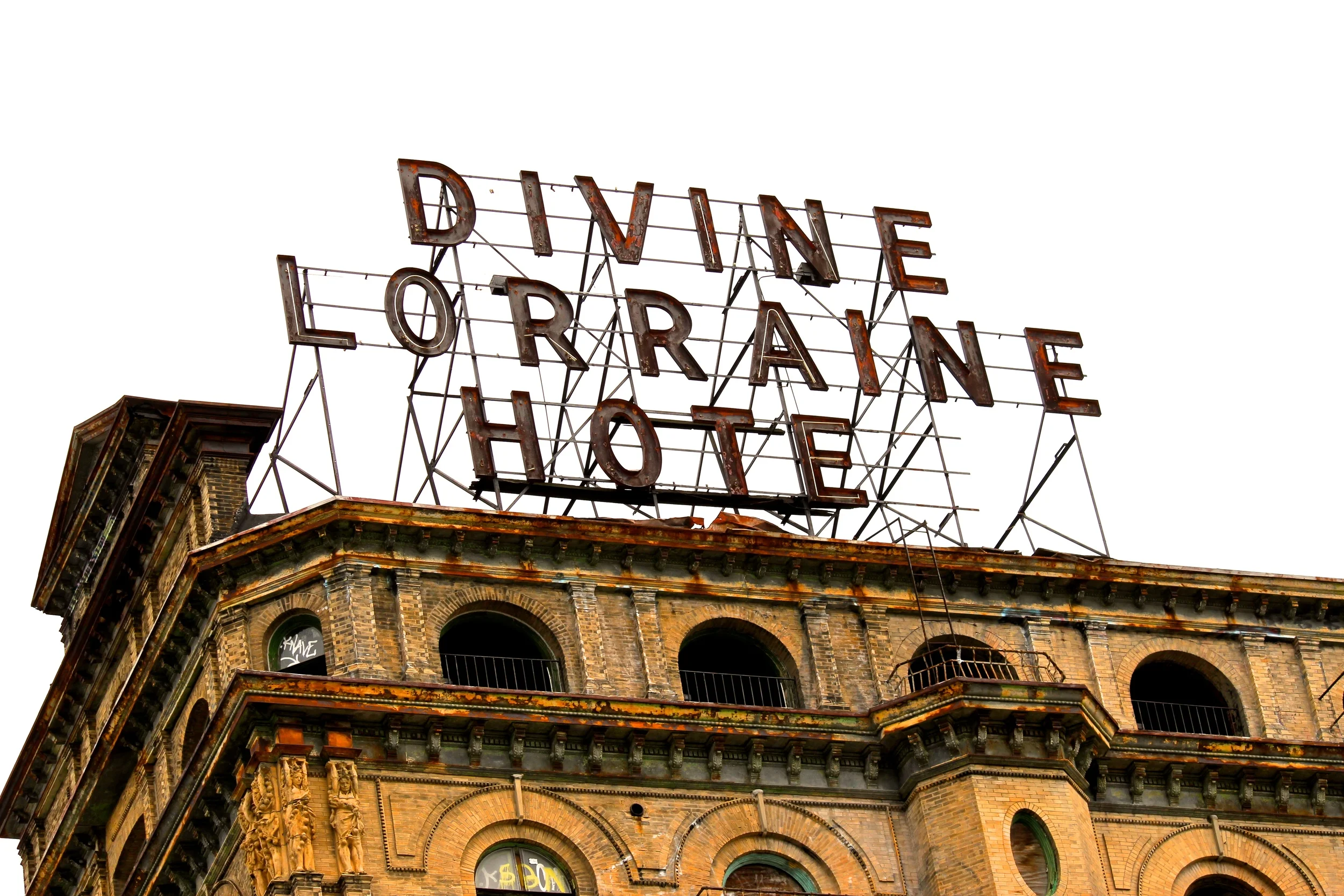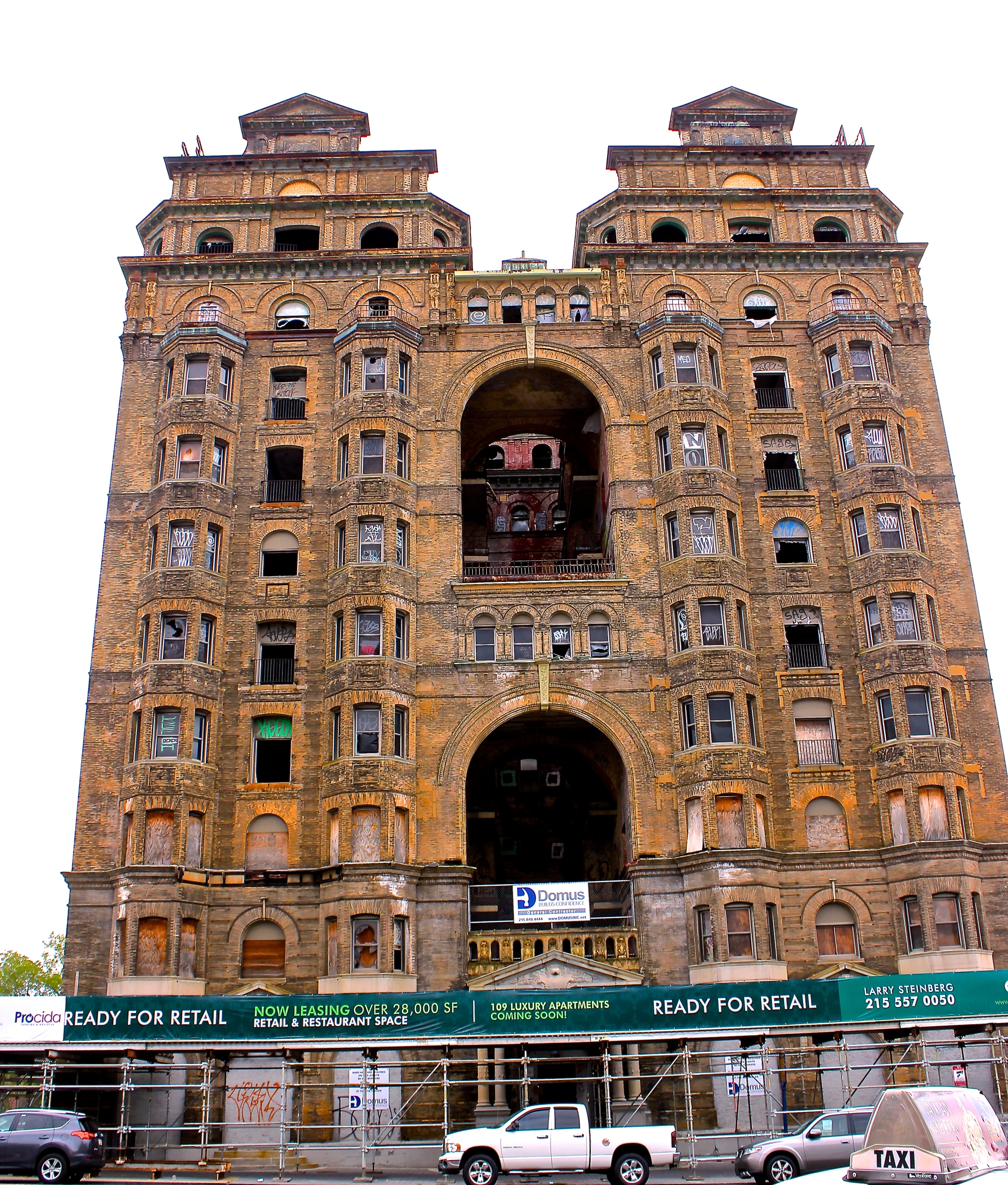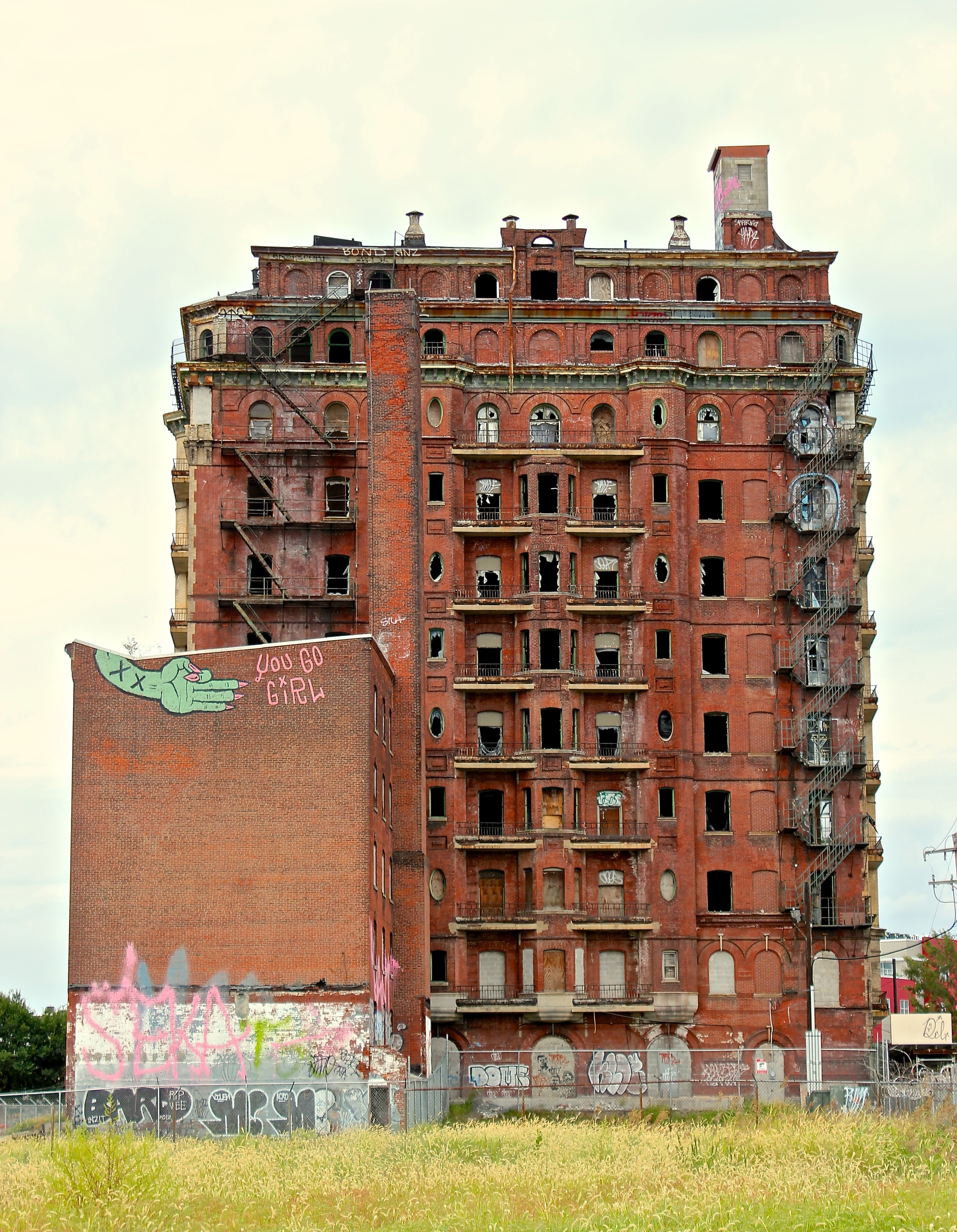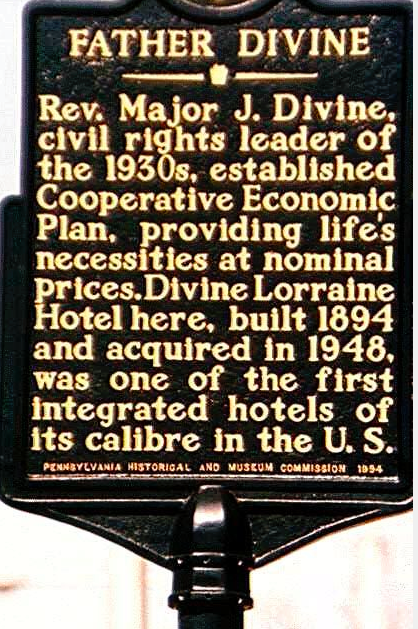The Divine Lorraine: A 19th Century Victorian Fortress
at Broad & Farimount
By Jim Brennan
There is an annual Philadelphia tradition known as the Broad Street Run, a ten-mile trek down the city's main thoroughfare that begins at Summerville Avenue and ends at the Navy Yard at the south end of Broad Street. Publicized as a race, the event is really a sightseeing tour of the city's diverse people and eclectic architecture. Each year a drummer pounds out the beat for runners on a full set of drums at curbside in North Philly, and string band members entertain in South Philly, while former mayor Ed Rendell high-fives everyone who passes him on the Avenue of the Arts. The appearance of Broad Street has changed over the years, from the ever-expanding Temple University campus on north Broad Street to the ever-changing stadium district on south Broad. In the early 1980s, the Broad Street Run ended in JFK stadium, one of three complexes that came and went with time along with Veterans Stadium and the Spectrum. Citizens Bank Park, Lincoln Financial, and the Wells Fargo Center have replaced those venues.
Through all of the change, some buildings remain as a reminder of Philadelphia's proud history. The most prominent is City Hall with Billy Penn perched on top at Broad and Market Streets. But one building anchored at the intersection of Broad Street and Fairmount Avenue since 1894 predates City Hall—the 19th Century Victorian fortress known as Divine Lorraine.
The Divine Lorraine opened as the Lorraine Apartments, luxury apartments that housed wealthy residents who prospered during the city's manufacturing boom of the early 20th Century. It became the Lorraine Hotel in 1900, and then in 1948 was bought by Father Divine, leader of the Universal Peace Mission Movement, who renamed it the Divine Lorraine Hotel.
Under Father Divine's leadership, the Divine Lorraine became the first racially integrated hotel in the country, open to men and women of all races and religions. Father Divine established strict rules including no smoking, drinking, or profanity. Undo mixing of the sexes was also prohibited. Men and women were restricted to separate floors of the building. He converted the 10th floor auditorium to a place of worship, and opened the kitchen on the first floor as a public dining room where people from the community could purchase meals for 25 cents.
The Divine Loraine received a historical marker from the Pennsylvania Historical and Museum Commission in 1994 and was listed on the National Register for Historic Places in 2002 as a site of significance in terms of architectural and civil rights history.
The hotel was sold by the International Peace Mission in 2000, resold in 2001, and then several more times before developer Eric Blumenfeld purchased it in 2006. Since it was sold in 2000, the furnishings have been sold and salvage companies removed fixtures and materials from a bygone era leaving barely more than brick, mortar and timbers exposed to the elements. The abandoned building became a magnet not only for graffiti artists and drug users, but also photographers and urban explorers who find abandoned artifacts romantic.
I've run past the Divine Lorraine countless times in my life. When I volunteered with Back on My Feet, a running program for sheltered residents, we'd stretch and do calisthenics in a nearby lot and then run a warm-up lap to the Divine Lorraine and back. I remember sitting on the island across the street from the hotel with my friends eating birthday cake at 6 a.m. and admiring the architecture. The Divine grew on me, like a family member. They don't construct buildings with the craftsmanship and character of the Divine anymore. I find no warmth in fifty-stories of glass. Don't get me wrong. I dig the Cira Center, its mirrored geometric angles and cool light shows. Same goes for the Liberty Places and the Comcast Building, and I am in awe every time I see One World Trade Center, but those buildings will never feel like a long lost relative.
Fortunately for Philadelphians, the Divine Lorraine will live again. New development plans include ground floor restaurants and retail outlets, 109 apartment units on the upper floors, and a sunken outdoor garden area on the south side of the building. Lorraine's revitalization plans are already invigorating business on north Broad Street, including development of the former Inquirer/Daily News building at Broad and Callowhill Street, the wedding venue Vie and surrounding restaurants Alla Spina and Jimmy G's Steaks across the street from the Divine.





